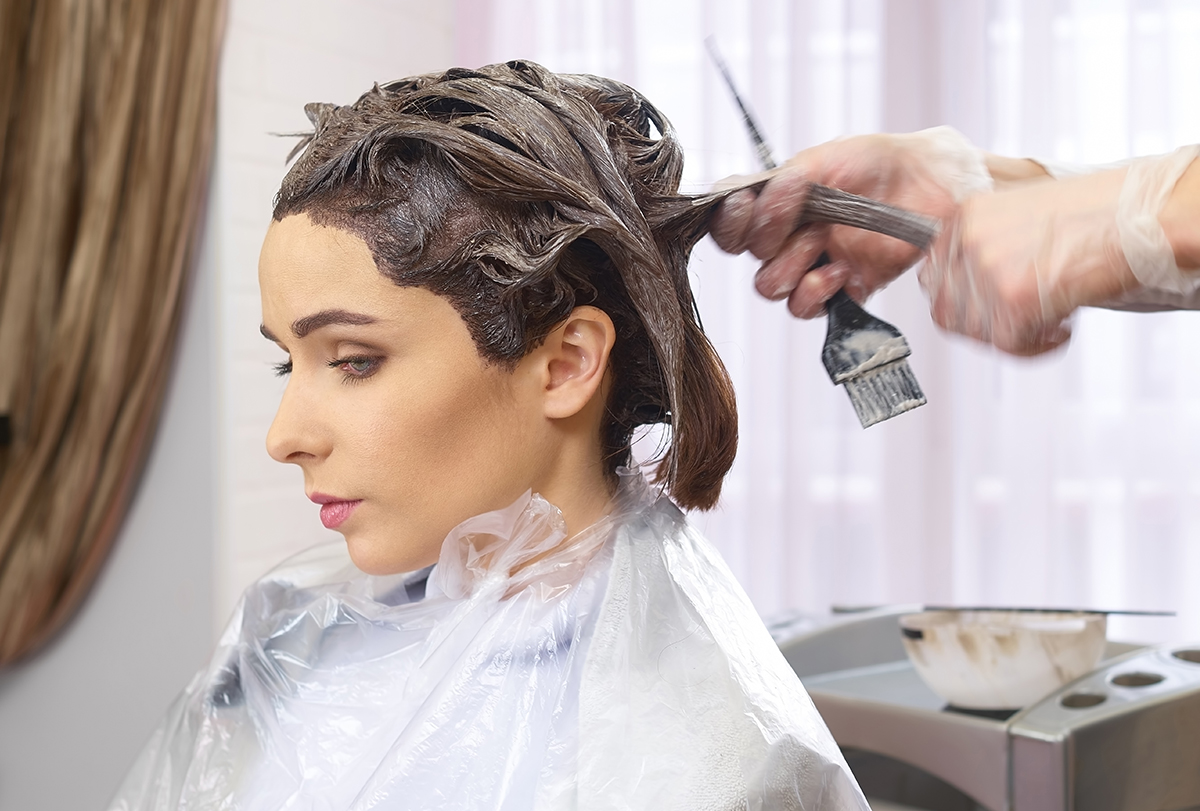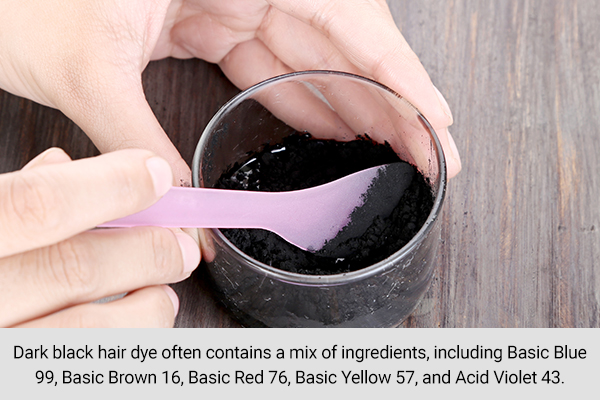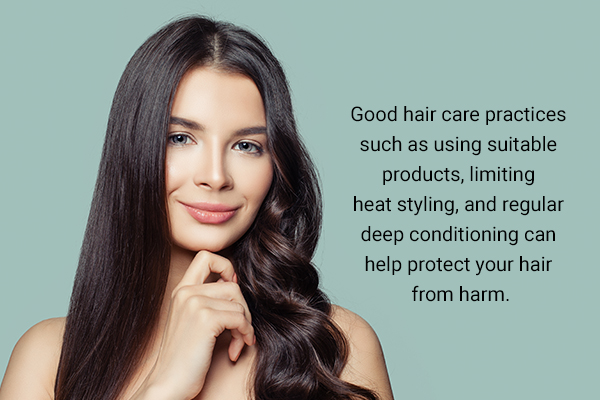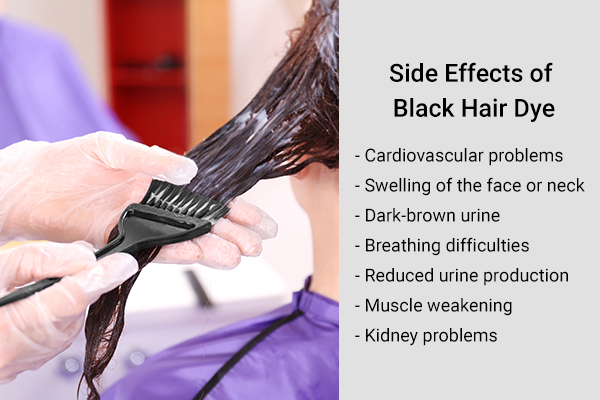In this article:
A lot of people dye their hair black when they age and their hair starts to turn white or gray. Also, those who are born with blonde or a lighter hair shade might want to dye their hair black for a new fresh look.

But the question many ask is whether dyeing hair so dark can be damaging or not.
When you dye your hair, you can either go lighter or darker. Lightening the hair involves the use of harsh chemicals that are incredibly damaging to the hair, such as bleach.
However, when making the hair go darker, bleach is not required, and you can directly use the dye.
By comparison, therefore, darkening the hair and dyeing it black is not as damaging as lightening it. Still, the black dye itself contains chemicals that hold the potential to damage the hair to some extent.
How much damage your hair will undergo from the black dye depends on the type and quality of the dye you use. Look into it in detail to understand how black dye may damage hair by reading on.
How and When Can Black Dye Damage Your Hair?
The following aspects can make black dyes damaging to your hair.
1. Permanent hair dye
Temporary and semipermanent hair dyes are simple to use and don’t chemically change your hair. They rely on gentle forces to add color.
Meanwhile, permanent dyes are more complex. They start as colorless and need a developer with hydrogen peroxide to work. This developer swells your hair and bleaches its natural color. It also causes the colorless dye to change into larger, colored molecules that stay inside your hair. (1)
Dark permanent dyes, such as black or dark brown, pose more risks because they use stronger precursors that can harm your hair. (1)
2. Presence of harmful colorants

Dark black hair dye often contains a mix of ingredients, including Basic Blue 99, Basic Brown 16, Basic Red 76, Basic Yellow 57, and Acid Violet 43. These chemicals, while common in hair products, have raised some concerns: (2)
- Basic Blue 99 has mutagenic potential
- Basic Brown 16 can lead to chromosome damage
- Basic Red 76 may cause genetic damage
- Acid Violet 43 has shown potential for causing damage
Therefore, black dyes may have an increased risk of damaging hair by harming your cells.
3. Presence of harmful chemicals
Before using any dye, it’s crucial to know about the chemicals it contains. One key chemical is diaminotoluene, made from dinitrotoluene. It has two forms, toluene-2,5-diamine and toluene-3,4-diamine, which give different hair colors such as the black color.
Toluene-2,5-diamine can be absorbed through the skin and may cause skin sensitization and reproductive issues. Regulations limit its concentration in hair dye. (3)
4. Not following the instructions
The way you use and apply black hair dye plays an important role in minimizing hair damage. Whether you opt for professional help or do it yourself, follow the instructions as proper application is key to preventing and reducing harm.
5. Dyeing already damaged hair
The condition of your hair matters. If it’s already damaged, overprocessed, or weak, coloring can worsen these issues.
6. Improper hair care after dyeing the hair

What you do after dyeing your hair dictates the potential damage it has on your hair. Good care practices such as using suitable products, limiting heat styling, and regular deep conditioning can help protect your hair from harm.
Other Adverse Effects of Using Black Dye
Dyes can cause other side effects not only your hair.
1. Increased risk of cancer
Researchers have raised concerns about hair dye and its possible connection to cancer. According to them, people who used any kind of hair dye had a slightly higher risk of cancer. Using dark black hair dye increased the risk by 9% compared to not using any dye. (4)
Another study found that using dark black hair dye for a prolonged period may increase the risk of non-Hodgkin’s lymphoma and multiple myeloma. (5)
2. Allergic responses
Many people use henna for coloring their hair black. Black henna is created by mixing red henna with PPD (p-phenylenediamine).
Research has shown that black henna can trigger contact allergies, affecting about 2.5% of users after they have been sensitized to it. (6)
3. Other side effects

Various other common side effects of black hair dye may include: (7)
- Cardiovascular problems (8)
- Swelling of the face or neck
- Dark-brown urine
- Breathing difficulties
- Reduced urine production
- Muscle weakening
- Kidney problems
How to Reduce the Negative Effects of Black Dye on Your Hair?
Experts advise to keep the following in mind to reduce the negative effects associated with the use of black hair dye:
- Always buy dyes that contain high-quality ingredients and from reputable brands
- Prefer more natural ingredients over harmful chemicals
- Ensure proper hair care practices after dyeing your hair
- Follow the given instructions properly when dyeing your hair
Most-Asked Questions
Can I bleach hair that is dyed using black dye?
It is best to not bleach previously permanently dyed hair as this can be very damaging.
Should I dye my hair starting from roots or from the ends?
It is easier to work top to bottom when dyeing.
Final Word
Understanding how and when black hair dye can impact your hair is crucial in making an informed decision. While there is potential for damage, it can be minimized with the taking right precautions and using high-quality products.
- Was this article helpful?
- YES, THANKS!NOT REALLY


